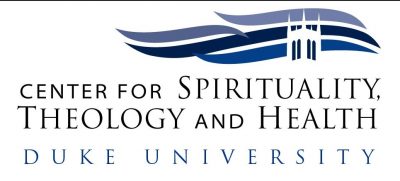Charlotte Observer
September 3, 2002
Harold Koenig has a message for older America: Get off the couch, turn off the TV and do something.
Actually, Koenig, director of Duke University’s Center for the Study of Religion/Spirituality and Health, is much more tactful than that. But in his new book, Purpose and Power in Retirement: New Opportunities for Meaning and Significance (Templeton Foundation Press, $19.95), Koenig argues that we’ll all be a lot happier in retirement if we find work or a volunteer job that gives our lives meaning.
Koenig, a geriatric physician and psychiatrist, decided to write the book because he sees many healthy older adults who view retirement as a time to disengage from society. At the same time, he meets many seniors who question the purpose of their lives, especially when they become ill or lose loved ones.
All of us have read stories of seniors who start businesses or volunteer hundreds of hours, but many healthy seniors view retirement strictly as a time for leisure. Fewer than a third of retirees do volunteer work, and one study found the elderly spend nearly half their free time watching television.
The notion of retirement as a time to kick back and have fun is a fairly recent one, Koenig says, popularized in the ’50s and ’60s by entrepreneurs who marketed leisure retirement communities, such as Arizona’s Sun City.
Nothing wrong with fun, Koenig says, but longer life spans mean that retirement could easily amount to a third of our lives. “After vacationing for a while, a few months pass, pretty soon you say, ‘Hey, is this it?'” he says.
Koenig encourages patients to take on a service activity. Everyone can do something to really help people, he says. Even something as simple as making phone calls to check up on homebound people provides a real help. “If (seniors) are feeling bored or wondering why they’re still alive, there are these things they can do with their talents they still have,” he says.
Studies have also shown that people who have a strong purpose in life often feel better mentally and physically.
It often takes a lot of energy to make the firsts step, he says. “But once you develop new momentum in a good direction, that tends to be self-fulfilling.” One way to start might be to find a friend or neighbor to volunteer with you, because “it’s tough to go in completely new to an organization.”
Figure out what you really love doing, he says. Then think about how you can use that talent to help someone. “It’s doing something in the world,” he says, “that makes life meaningful.”
Library Journal
September 15, 2002
Both Autry and Koenig explore the spiritual and development aspects of retirement from a Christian perspective, noting that people underestimate how difficult it is to switch from the working world to “the land of no boss.” A solid plan for retirement, they agree, will provide happiness and a seamless transition from one’s career. Far from being the end of one’s life, retirement should instead be seen cheerfully as that “one-third of life that no longer has the restrictions of the first two-thirds.” Autry, a former Fortune-500 executive, champions the notion that living healthily, volunteering, and growing spiritually in retirement “can become a liberating path toward a life of opportunity and personal and spiritual growth.” An over-arching focus on connecting with the people who love and need you, with nature, and with your inner self permeates this book. Koenig (psychiatry and medicine, Duke University Medical Center) will appeal more to eggheads. Well-researched and packed with statistics and studies (and 286 endnotes!), his book observes that “baby boomers will be the healthiest, most physically active, best-educated group of retirees in history.” In an academic tone, he encourages retirees to “make a meaningful difference for at least one other person” in the world. Yes, retirees have earned the right to relax, but while “recreation and a little self-indulgence are definitely part of the picture…they are not at the center of the picture.” Offering more heart and authoritative how-to advice, Autry’s book is recommended for public libraries. Koenig writes more as a social scientist than a guru, and thus his book is more suitable for academic libraries. For the cut-and-dried crowd, try Lynn O’Shaughnessy’s The Retirement Bible.
From Publishers Weekly
In this thoughtful self-help manual, Duke University associate medicine professor Koenig explores life after retirement as an opportunity for growth. He presents a stimulating overview of the social trends e.g., the shift from older Americans working far past the age of 65 (in the 1800s) to older Americans with increased economic independence (in the 1900s) that led to the common view of retirement years as leisure time. Koenig debunks the myths that surround this life period and argues that embarking on a life of relaxation is actually counter-productive to one’s health. A life of self-indulgence may lead to “lower levels of well-being” brought on by weight gain and marital problems, he says. Koenig contends that a successful retirement results not from a high income, but rather from identifying a higher purpose in life that will lead to emotional fulfillment. Although everyone must design their own retirement goals, Koenig suggests choosing activities that benefit others and that are based on talents or abilities a retiree possesses and will enjoy utilizing. He recommends seeking out volunteer opportunities, and also stresses deepening one’s personal spirituality in retirement. Those who share the author’s strong religious orientation will benefit the most from his advice. A committed Christian, he nevertheless believes that all religions can offer the means to spiritual development and offers here resources for people of many faiths, as well as for those who are uncertain of their spiritual direction. Altogether, it makes for an introspective look at a lengthening period in the lives of older Americans.
© Copyright 2002 Cahners Business Information, Inc.
